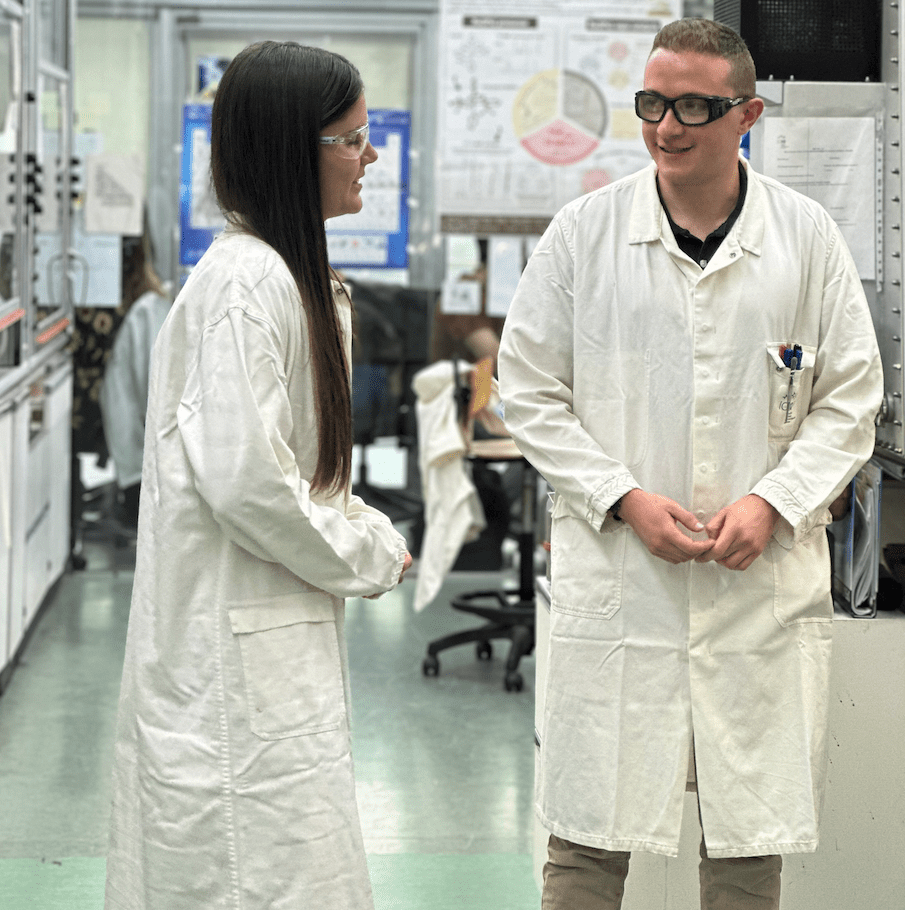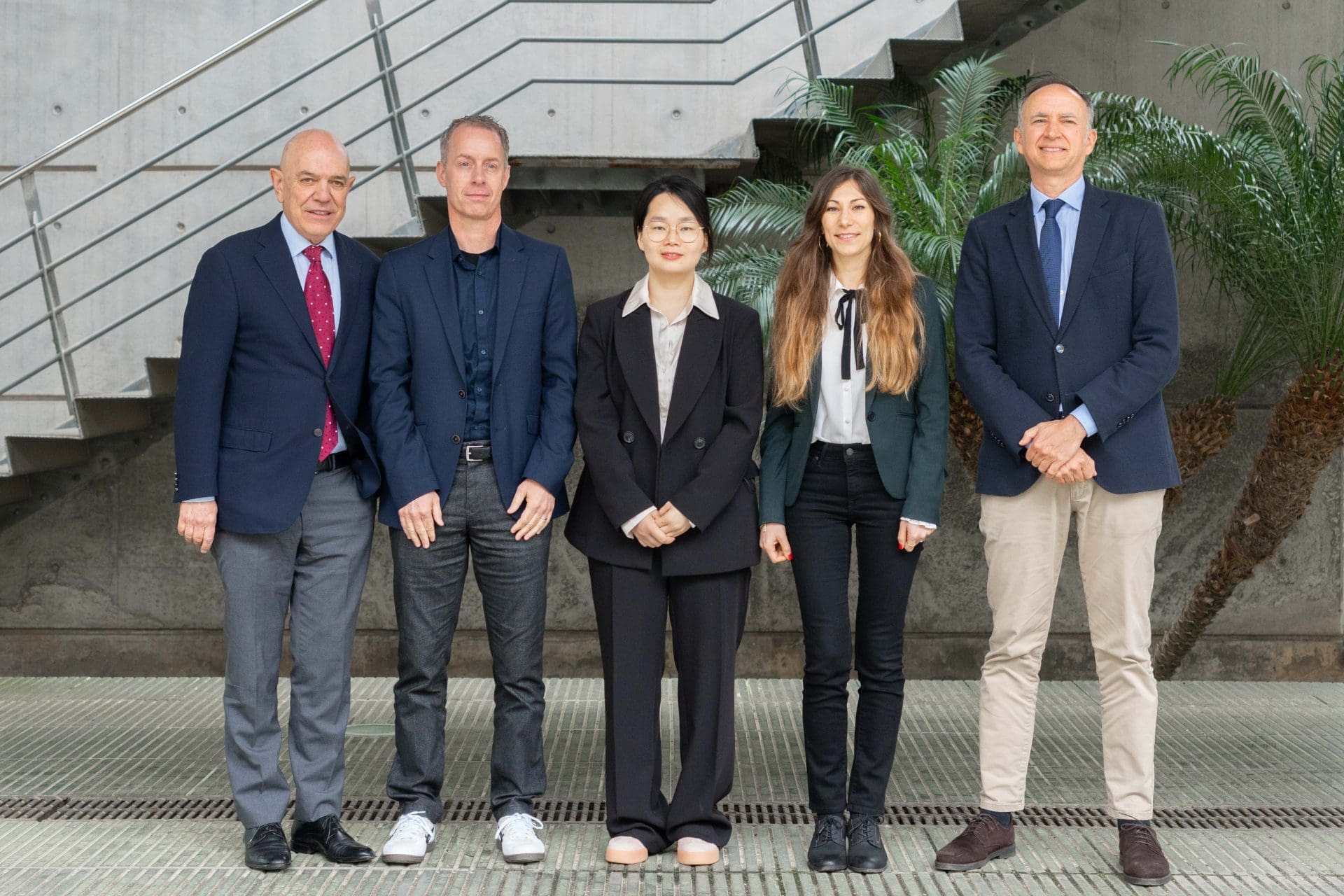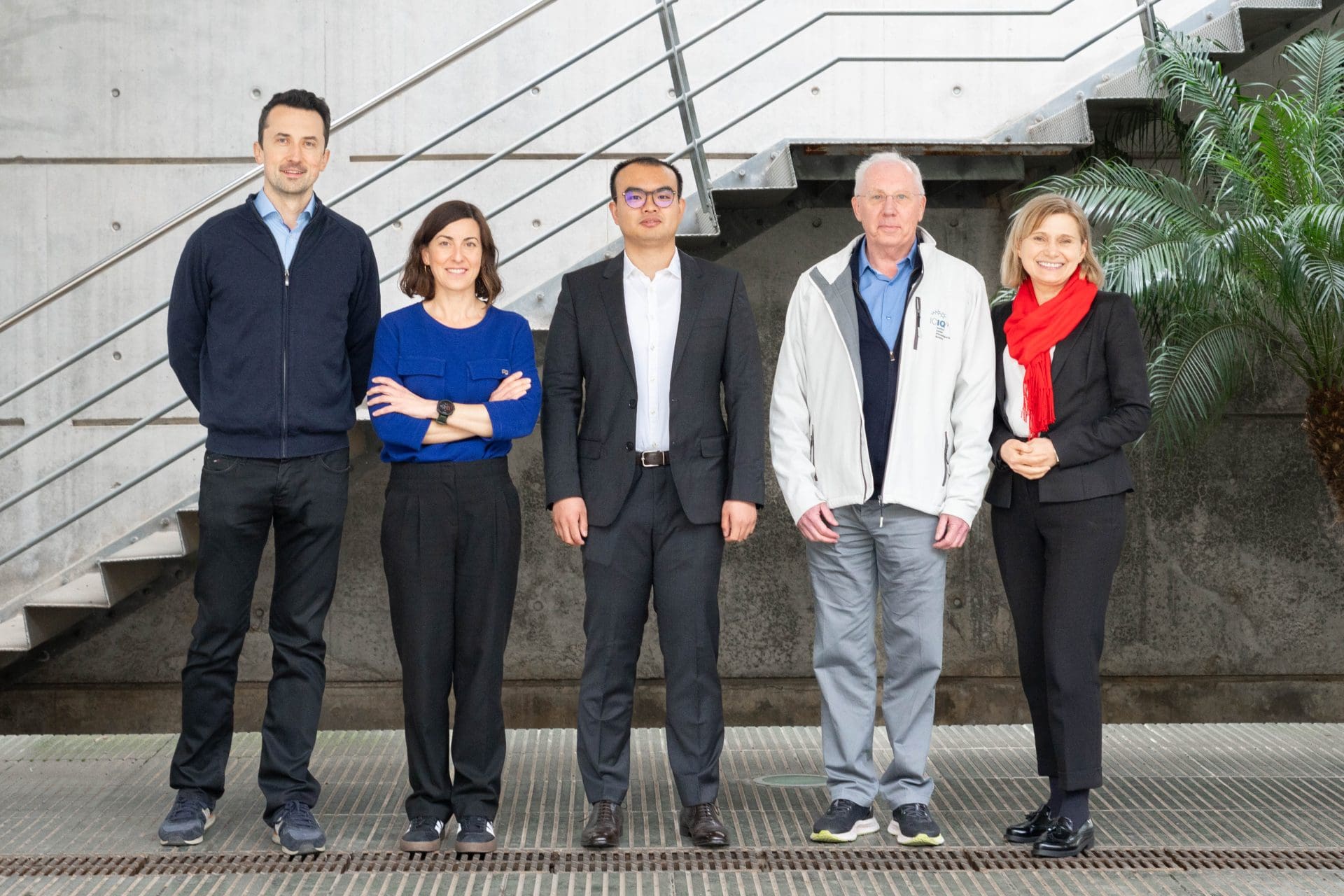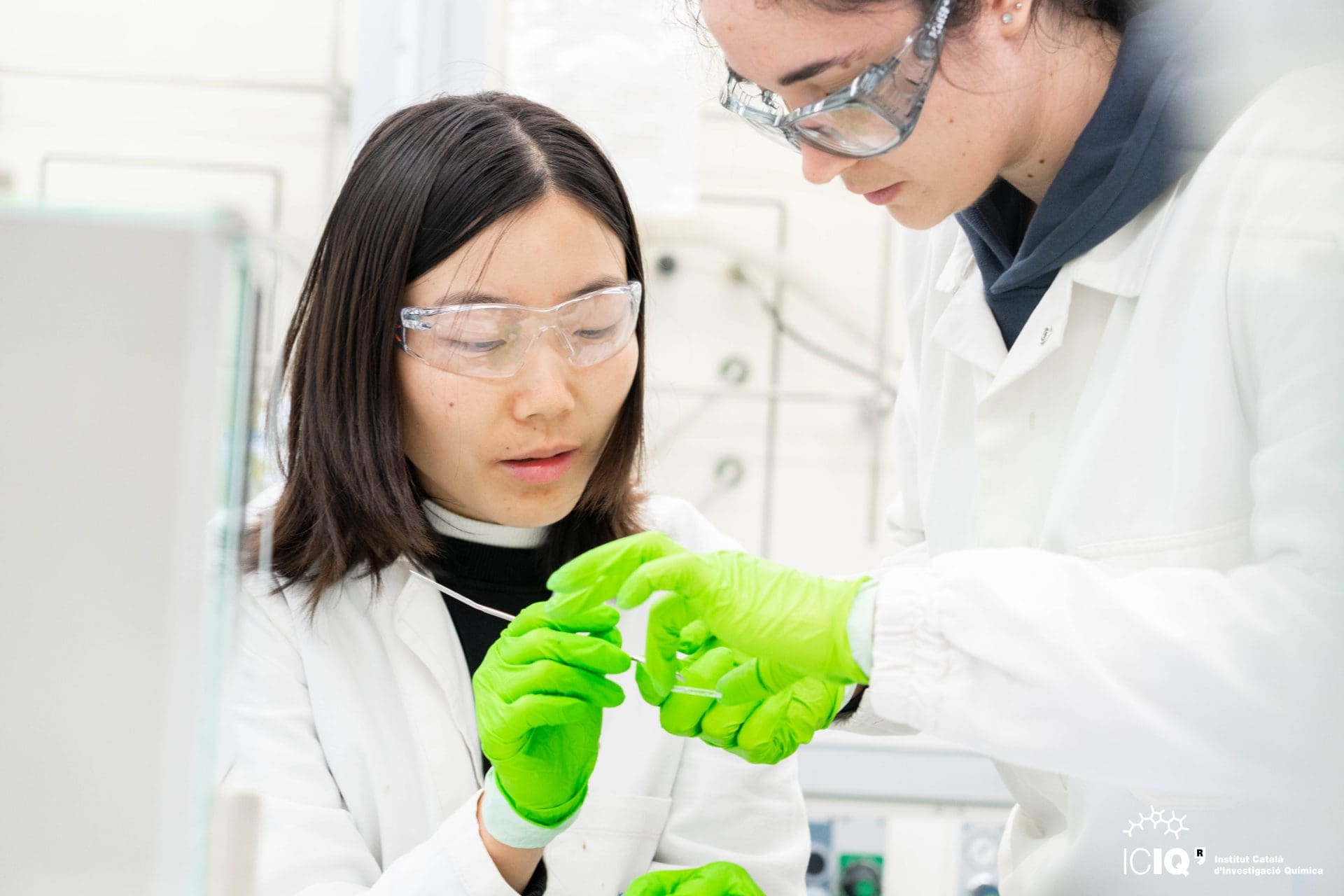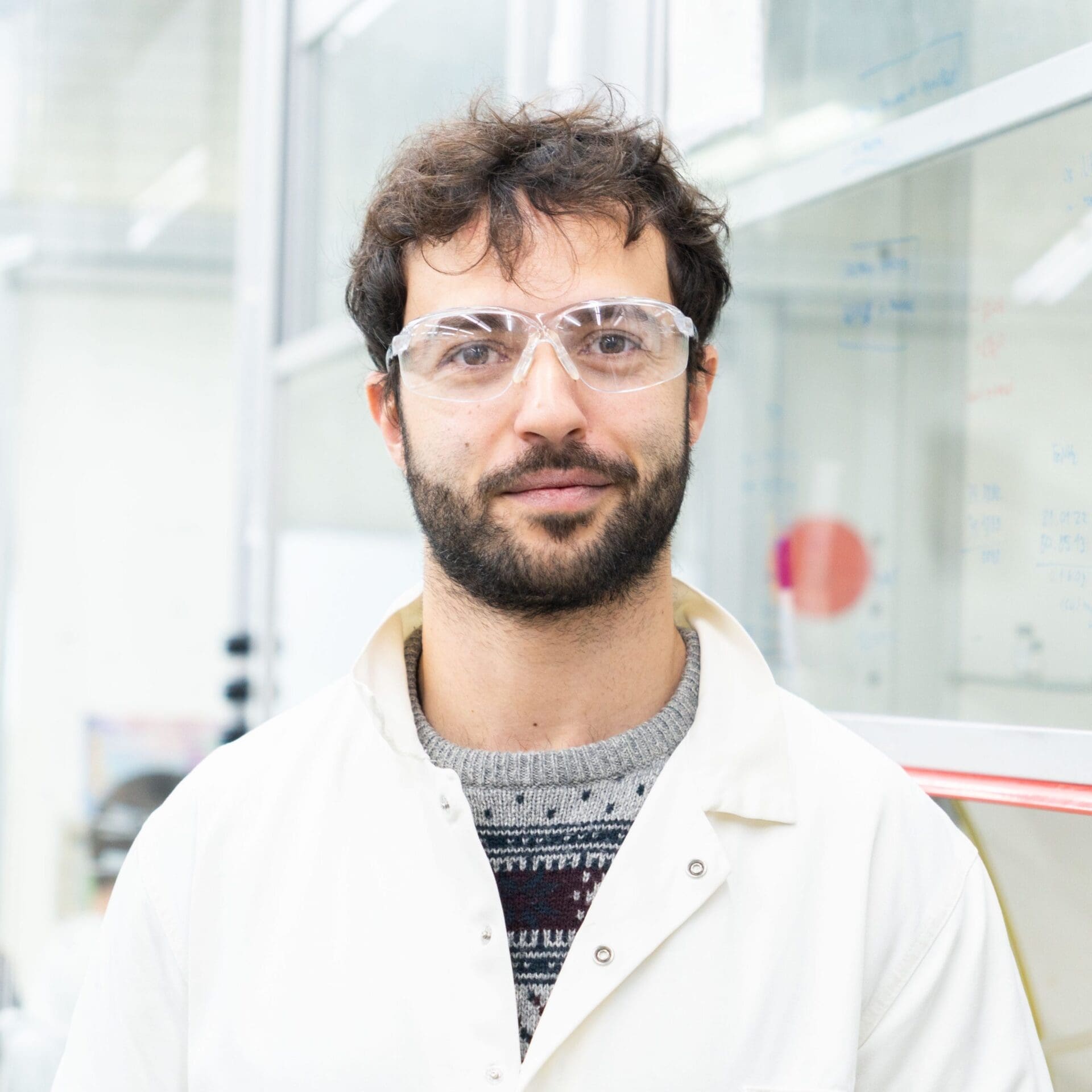Congratulations, Dr. Fernández!
13th July 2022 – Sergi Fernández, PhD student under the supervision of Prof. Julio Lloret-Fillol (ICIQ) and Prof. Josep M. Luis (UdG), has defended his PhD thesis entitled “Development and mechanistic study of well-defined catalysts for the CO2 and H2O reduction reactions” (assigned to the Inorganic and Physical Chemistry Department of the Universitat Rovira i Virgili) publicly on July 13th.
The members of the evaluation committee were: Prof. Gregori Ujaque (UAB), Prof. Carole Duboc (University of Grenoble), and Prof. Andrea Sartorel (University of Padova).
Dr. Fernández is from Lloret de Mar, in Girona. He obtained his bachelor’s in Chemistry from University of Girona – actually, during his last summer as an undergraduate in 2015, he visited ICIQ for the first time as a Summer Fellow working in the Lloret-Fillol group. Once graduated, he did a master’s at University of Girona before joining ICIQ for his PhD, where he has enjoyed an FPU grant. Outside the lab, he likes spending time with family and friends, be that having a drink, spending time by the sea, hiking, going to the cinema, or watching films and shows to relax.
What is the topic of your thesis?
My thesis is focused on the catalytic production of energy, and how these reactions happen at a molecular level. I have studied the molecular mechanisms of reactions to understand the problems associated with their mechanisms and so find strategies to solve these problems and create more efficient catalysts to make reactions more sustainable.
What triggered your interest in this topic?
Catalysis and reaction mechanisms are multidisciplinary fields, where you can apply different techniques and a plethora of knowledge to tackle a problem from different points. This is something that I’ve always liked: digging deep and learning things to solve problems. Taking care of the environment and finding new energy solutions is one of the challenges our society faces, and I think it’s a very interesting topic.
Why did you decide to become a scientist?
Since I was a child, I have been curious, I always took notice of what happened around me and tried to understand or asked why things were the way they were. I think research is the best place to find answers.
What do you want to achieve as a scientist?
Overall, I would like to be able to explain a chemical phenomenon that no one before has been able to. And, to train future researchers to pursue their own scientific careers.
What did you enjoy the most from your thesis?
Being able to tackle a project from different perspectives by using different techniques and trying to make everything converge. Giving a general explanation of a phenomenon by integrating all the knowledge you have generated during your research.
From the lessons learnt during your PhD, which one do you value the most?
That research is made by people, not machines, so you need to understand how people work. Understanding others’ needs and being able to express yours is extremely important to have good cooperation at work. My time here has also taught me that to be useful (at work and outside), you need to be able to help the people around you, if you do, people will reciprocate.
What advice do you have for someone who’s starting now a PhD?
As hard as it might be, enjoy the journey and get to know the people around you. You can’t (nor shouldn’t) work alone, research is a group endeavour and you’ll need other people to help you achieve your goals.
What ICIQ moment you’ll never forget?
The first day I arrived as a Summer Fellow, I was so nervous! I will not forget the smell of peaches at ICIQ that first day. I also cherish the afternoons spent in the lab running reactions with my lab mates and choosing the songs we’ll work to during the afternoon.
What’s next?
I’m joining the group of Prof. Alex Miller at the University of North Carolina at Chapel Hill to work as a postdoc for two years on anchored molecular catalysts for energy applications.
Do you have a favourite molecule?
Ferrocene – it’s an organometallic compound that I have used many times because it’s used by electrochemists to calibrate redox potentials. Also, I love symmetric molecules!
If you were to become a piece of lab equipment, what would you be?
A spectroelectrochemistry cell because it’s a piece of multidisciplinary equipment that allows you to perform electrochemistry while you take measurements with an optical spectroscopic technique. I have used it a lot because it gives you so much information that it makes it almost easy to solve reaction mechanisms.
Can you tell us something about you that people might not know?
I’m a huge Eurovision fan!
Related news

Let's create a brighter future
Join our team to work with renowned researchers, tackle groundbreaking
projects and contribute to meaningful scientific advancements
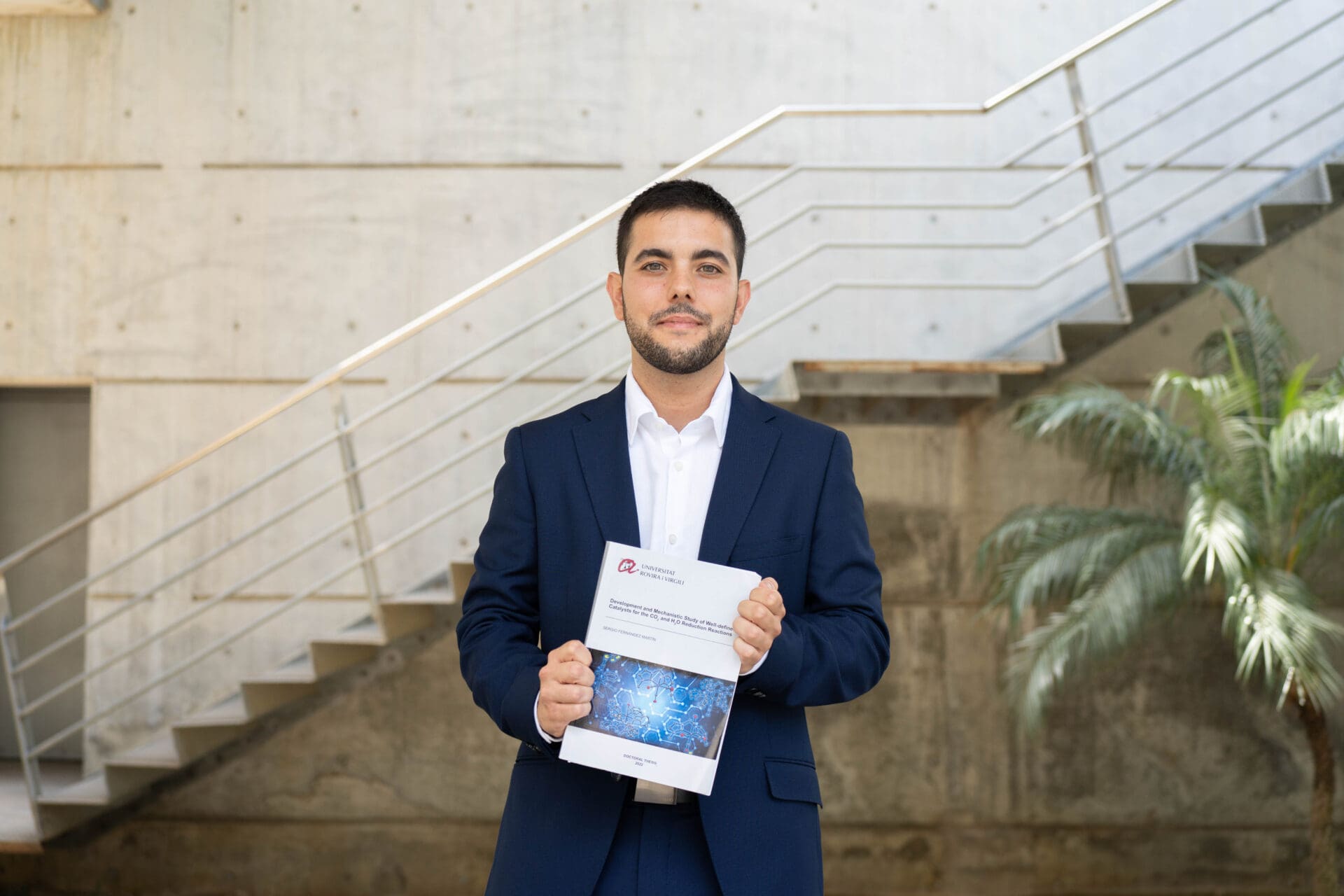
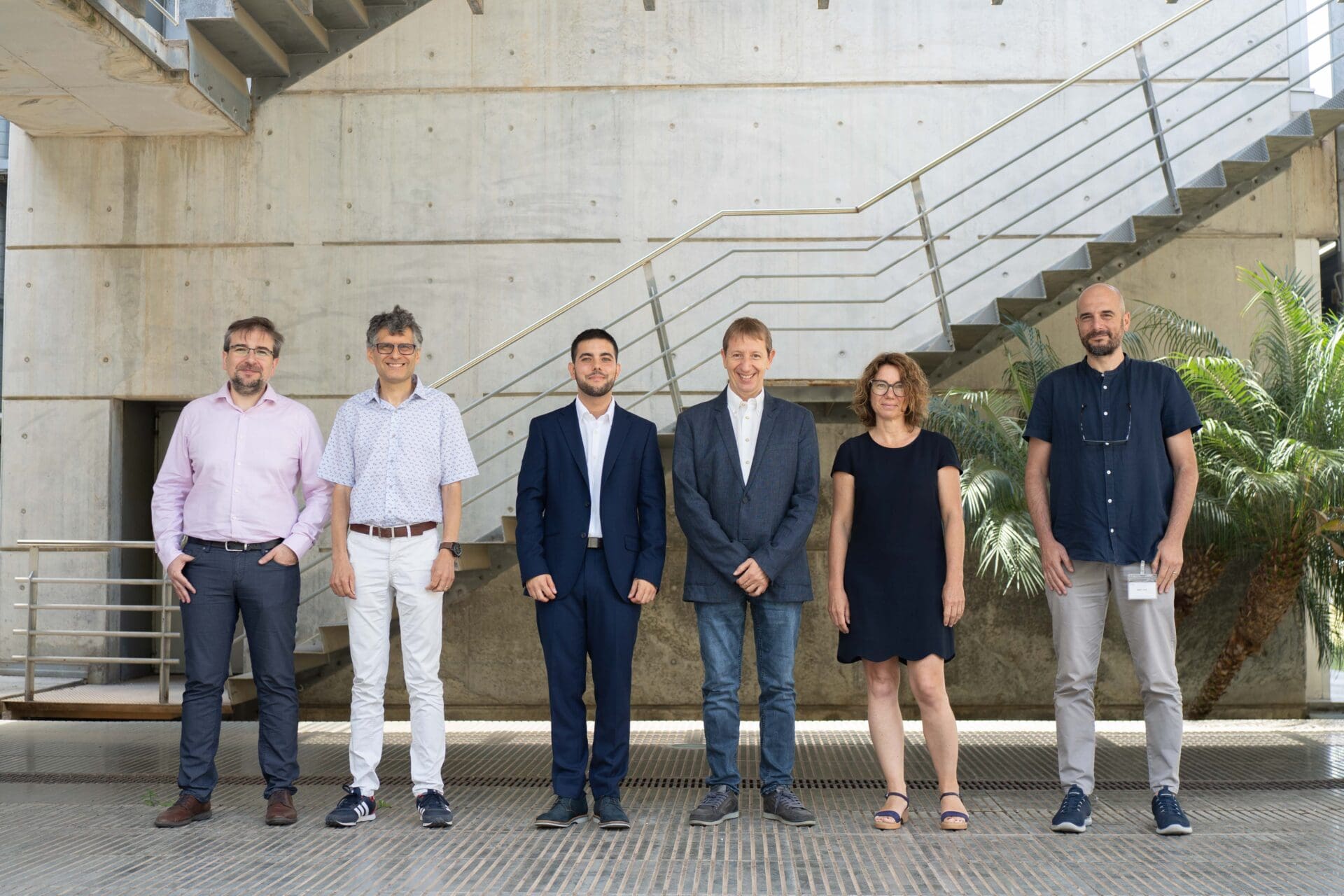





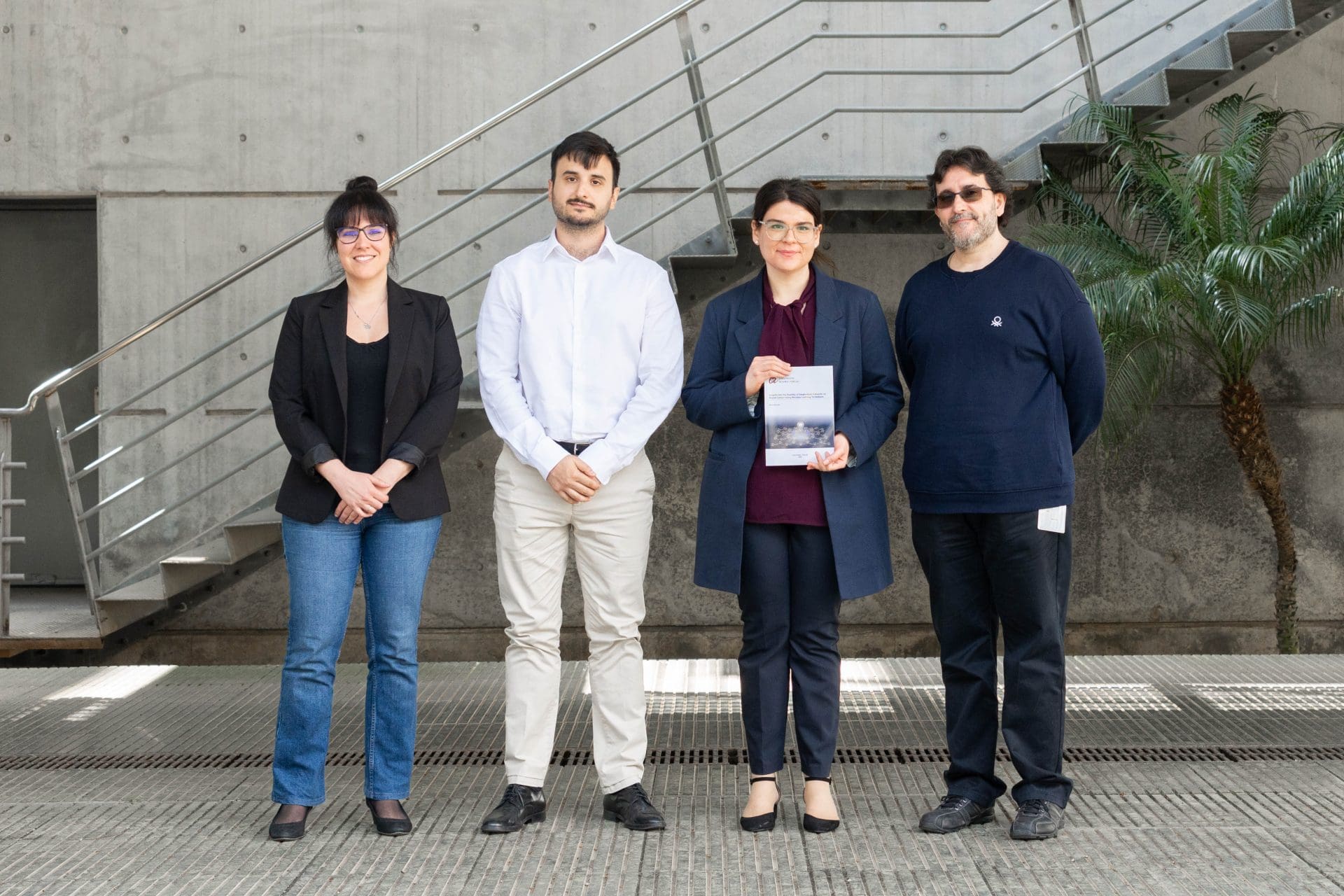
 09-04-2025
09-04-2025 